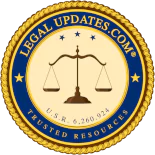
Expressive Honking and Veh. Code § 27001
Expressive Honking and Veh. Code § 27001: Unnecessarily honking one’s car horn is a violation of V.C. § 27001, even when done for the purpose of expressing a political or social viewpoint.
By Robert Phillips, Deputy District Attorney (Ret).
Have you ever driven by a group of people on a street corner who are enthusiastically waving banners and flags, with one or two of them holding up signs encouraging you to, “Honk, if you __.” (Fill in the blank with whatever it is the group is promoting.) Assuming you do in fact support whatever it is the demonstrators are advocating, what do you do You obligingly honk, do you not Think about it. You have a First Amendment right to express your opinion, just as does those who are encouraging you to honk. And if simply honking your car horn conveys a social, political, or other opinion, what’s so wrong in doing so?
Well, California Vehicle Code § 27001 says it is wrong to do so. Section 27001 makes it an infraction to violate its provisions. Specifically; “(a) The driver of a motor vehicle when reasonably necessary to insure safe operation shall give audible warning with his horn. (b) The horn shall not otherwise be used, except as a theft alarm system . . . .” (Italics added) So which takes precedence, your First Amendment right to freedom of expression on some presumably important issue of the day, or a simple state statute that says you’re violating the law when you do so You would think the former, given the rule that constitutional principles generally take precedence over a state statute. But the Ninth Circuit Court of Appeal says otherwise, at least when it involves balancing the importance of Section 27001 with your constitutional right to express you opinions.
In the recent reported decision of Porter v. Martinez (9th Cir. Apr. 7, 2023) 64 F.4th 1112., appellant Susan Porter filed suit arguing that her First Amendment rights had been violated when she was cited for honking her car horn under circumstances similar to those described above. Her ticket was later dismissed; the officer failing to appear when she challenged it in court.
Thus having been deprived of her opportunity to say her piece, she sued in federal court. The basis for her lawsuit was that Section 27001, as a violation of the First Amendment, was unenforceable, at least when the honking was done as a means of expressing her opinion. Specifically, Porter sought to block enforcement of Section 27001 against what she called “expressive honking.” In Porter’s view, expressive horn use includes honks not only in “support candidates or causes,” but also to “greet friends or neighbors, summon children or co-workers, or celebrate weddings or victories.”
Nice try, Ms. Porter, but no cigar, at least in the opinion of the Ninth Circuit Court of Appeal. After a long dissertation dealing with whether Section 27001 is “content based” or “content neutral” (ultimately finding it to be the latter), a majority of the Court (in a split, 2-to-1 decision) held that Section 27001 “furthers an important or substantial governmental interest” that is “unrelated to the suppression of free expression;” i.e., traffic safety and avoiding the unnecessary startling of other drivers. The majority opinion also found the statute to be “narrowly tailored to further California’s interest in safety regulation,” and that it “leaves ample alternative channels for people to communicate their ideas and messages.” As such, the Court, upon balancing the interests involved, held Section 27001 to be constitutional; the intrusions on Ms. Porter’s First Amendment right to freedom of expression being relatively minor.
So does this mean that as a law enforcement officer you should start citing anyone and everyone under all circumstances for their illegal “expressive honking” activities Probably not. As noted by the Court, even the law enforcement witness in this case who testified as an expert for the State agreed that enforcement of Section 27001 is done “exceedingly rarely.” Good public relations and just plain common sense dictate that this should probably continue as the usual practice, reserving enforcement of Section 27001 for cases where it is clearly being abused and enforcement serves some real benefit.







Add new comment